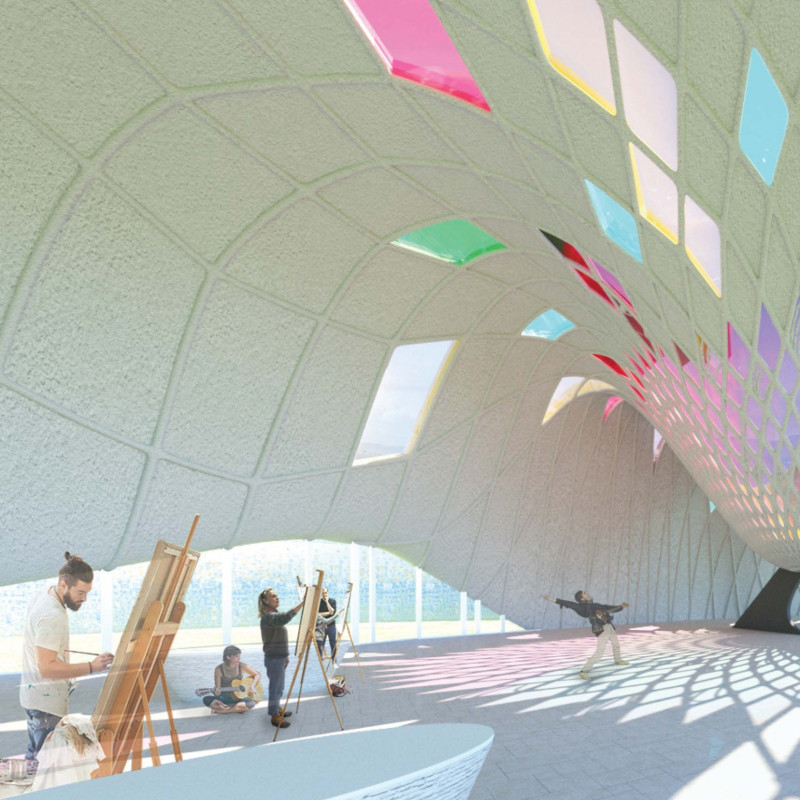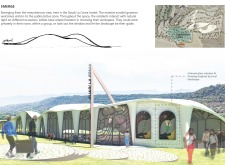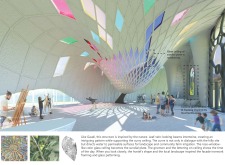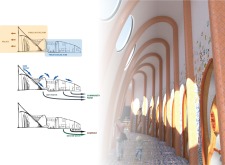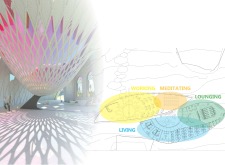5 key facts about this project
The Gaudi La Coma hostel is an architectural project designed to foster community and creativity within a natural landscape. Located in a mountainous area, the design seamlessly integrates with its surroundings while providing facilities for artist residencies and visitors. The project serves as a hybrid space for collaboration, relaxation, and inspiration, offering both private and communal environments.
The architecture focuses on connecting with the landscape, employing forms and materials that resonate with the natural context. The structure features an open layout that encourages interaction among residents, creating a conducive atmosphere for artistic endeavors. Each functional zone is carefully designated to balance social engagement with personal retreat areas, ensuring that users can opt for a dynamic or tranquil experience as desired.
Unique Design Approaches
One of the standout elements of the Gaudi La Coma hostel is its use of organic forms inspired by nature. The building’s design incorporates flowing shapes that mimic natural patterns, such as those found in plant life, enhancing the sensory experience of the space. The use of colored glass in the roofing and window sections allows for natural light to filter through in unique ways, creating a dynamic interplay of shadow and illumination throughout the day.
Another distinct feature is the large sundial gnomon, which not only serves as a functional timekeeping device but also acts as a sculptural focal point, guiding visitors through the outdoor spaces while enhancing spatial connectivity. This innovative element demonstrates a commitment to blending functionality with artistic expression, setting the project apart from typical hostel designs.
Sustainability and Materiality
The Gaudi La Coma hostel also prioritizes sustainability through careful material selection and ecological design strategies. The use of reinforced concrete ensures structural stability while accommodating the building’s fluid architecture. Coupled with ironwork framing and permeable surfaces for effective rainwater management, these choices reflect an environmentally conscious approach that compliments the hostel's mission. The strategy promotes a relationship with the landscape, allowing for resource repurposing through onsite features like a community farm.
For those interested in exploring the architectural details of the project further, including the architectural plans, sections, designs, and ideas that shaped this unique hostel, consider delving deeper into the project's presentation for thorough insights.


